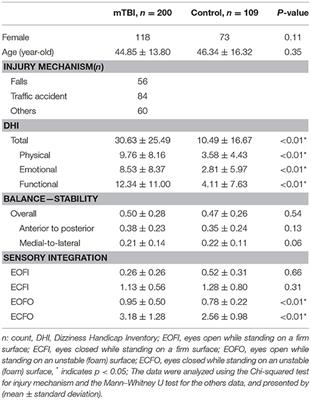EDITORIAL
Published on 15 Nov 2019
Editorial: Traumatic Brain Injury: From Bench to Bedside
doi 10.3389/fneur.2019.01214
- 1,540 views
- 1 citation
18k
Total downloads
84k
Total views and downloads
EDITORIAL
Published on 15 Nov 2019
MINI REVIEW
Published on 10 Sep 2019

ORIGINAL RESEARCH
Published on 25 Apr 2019

REVIEW
Published on 24 Apr 2019

ORIGINAL RESEARCH
Published on 26 Mar 2019

ORIGINAL RESEARCH
Published on 12 Mar 2019

ORIGINAL RESEARCH
Published on 08 Mar 2019

ORIGINAL RESEARCH
Published on 11 Feb 2019
